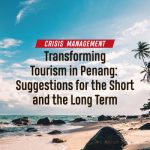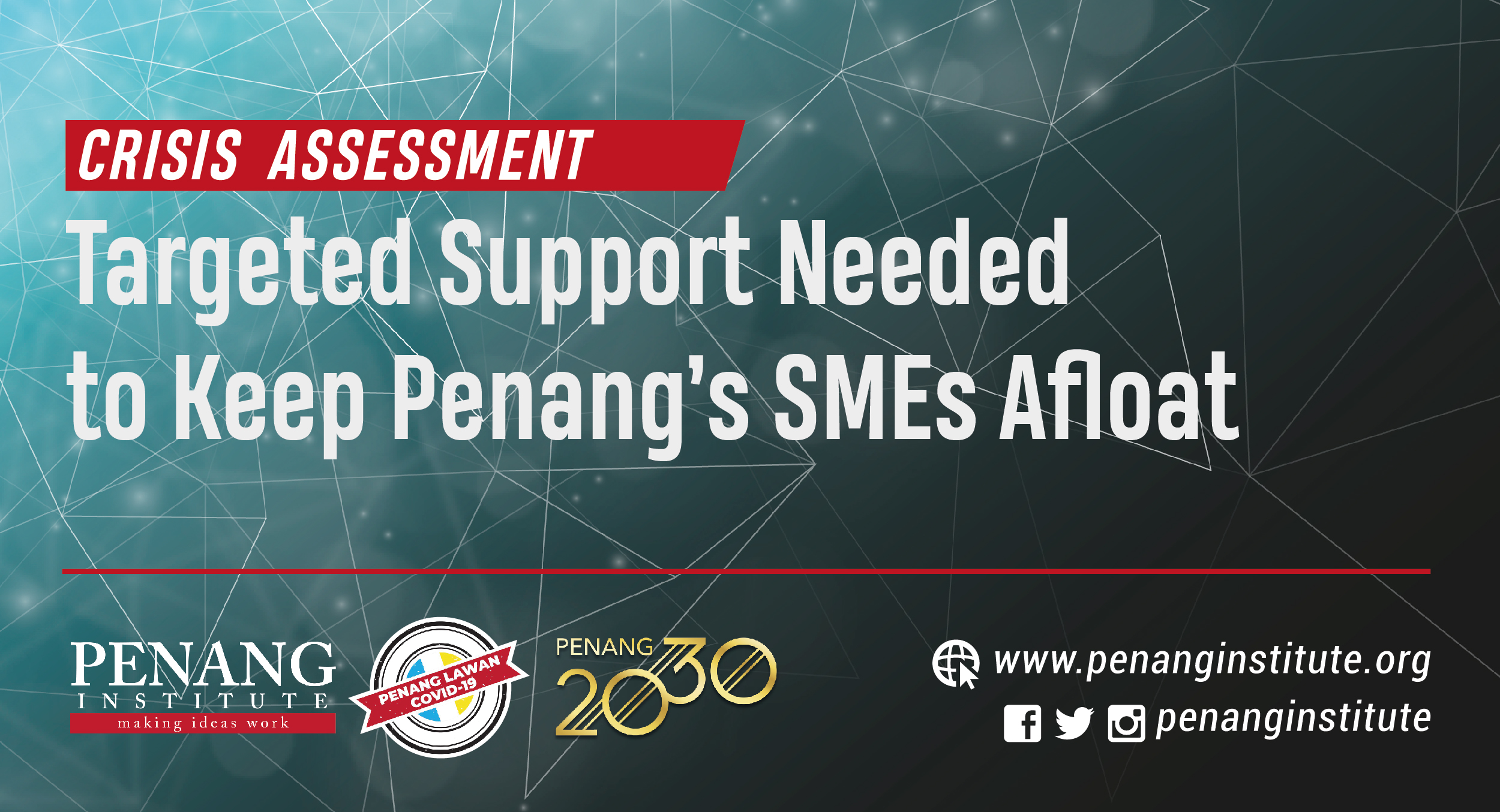By Timothy Choy (Senior Analyst), Yeong Pey Jung (Senior Analyst) & Yap Jo-yee (Analyst) | Posted on
Executive Summary
- The Covid-19 pandemic brought about the necessary enforcement of a Movement Control Order (MCO) which shuts down the operations of non-essential businesses and services for its duration. Penang’s economy and SMEs have subsequently been facing significant challenges with loss of revenue and the rise of unemployment on the horizon.
- All businesses are expected to be hit negatively, with some subsectors expected to fare much worse than others. The key subsectors and industries identified as needing urgent intervention are as follows, in order of priority:
- Tourism industry;
- Wholesale and retail trade;
- Repair of motor vehicles and motorcycles (MSIC: G) and other service activities (MSIC: S);
- Real estate activities (MSIC: L);
- Construction sector (MSIC: F) and;
- Agriculture sector (MSIC: A).
- Intervention measures should be considered from the perspective of:
- Reducing credit risks;
- Reducing high fixed costs, and;
- Income replacement.
- As for workers, measures need to be taken to support continuous employment, including salary
compensation. Migrant workers make up a significant proportion of SME employees. Therefore, they need to be included in all forms of worker interventions.
You might also like:

Environmental Policy Lessons to Learn From the Covid-19 Pandemic

Covid-19: Impact on the Tourist Scuba Diving Industry in Malaysia

Transforming Tourism in Penang: Suggestions for the Short and the Long Term

Domestic Violence and the Safety of Women during the Covid-19 Pandemic

Covid-19: Impact on the Tertiary Education Sector in Malaysia



